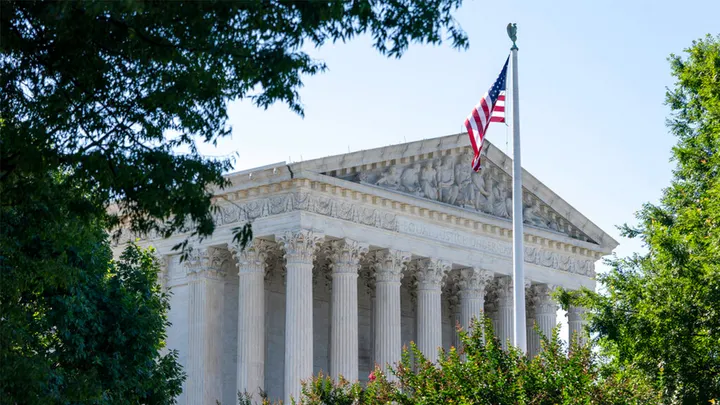
In a landmark decision, the Supreme Court has bolstered the Biden administration’s immigration policies by rejecting the challenge posed by GOP-led states. The court ruled, with an 8-1 majority, that the states lacked the standing to challenge the narrowing of federal immigration enforcement.
Justice Brett Kavanaugh, who authored the majority opinion, described the lawsuit as highly unusual. He pointed out that the states were seeking to compel the Executive Branch to change its arrest policies and increase the number of arrests, which went against traditional legal practices. Kavanaugh emphasized that the states failed to provide any legal precedent to support their claims.
The case centered around the Department of Homeland Security’s issuance of new enforcement guidelines. Initially, the department proposed a 30-day moratorium on all Immigration and Customs Enforcement (ICE) deportations.
However, revised guidelines were subsequently introduced, focusing ICE agents on three specific categories of illegal immigrants: recent border crossers, individuals posing threats to public safety, and national security risks.
The intention behind the revised guidelines was to employ enforcement resources more efficiently and exercise discretion in targeting individuals for arrest and deportation. DHS Secretary Alejandro Mayorkas explained that an individual’s removable noncitizen status alone should not be the sole basis for enforcement actions. Instead, a more targeted approach was deemed necessary to uphold justice and prioritize the well-being of the nation.
Critics argued that these guidelines represented a broader retreat from robust immigration enforcement and border security. They pointed to a sharp decline in ICE deportations coinciding with the implementation of the new priorities. Data showed that of the total arrests and deportations between October 2020 and October 2021, only a small fraction occurred after the revised guidelines were enacted.
Texas and Louisiana challenged the legality of these guidelines, contending that they would face increased law enforcement costs and strain on social services due to the surge in illegal immigration. While a district court initially granted them standing and blocked the policy’s implementation, the Supreme Court ultimately disagreed. The majority opinion concluded that the states’ injuries were not legally and judicially cognizable, and federal courts did not possess the authority to address them.
Justice Samuel Alito stood as the sole dissenter in this ruling, vehemently criticizing his colleagues for disregarding established precedent and factual findings made by the district court. He argued that the majority’s interpretation of executive authority was deeply flawed and that the states should have been allowed to challenge the policy.
With this ruling, the Biden administration has secured a significant legal triumph in advancing its immigration agenda. However, future challenges to the administration’s immigration policies are expected, including contentious issues like the “Parole with Conditions” policy. As the immigration debate continues, the Supreme Court’s influence in shaping the nation’s immigration landscape remains pivotal.
Source Fox News

